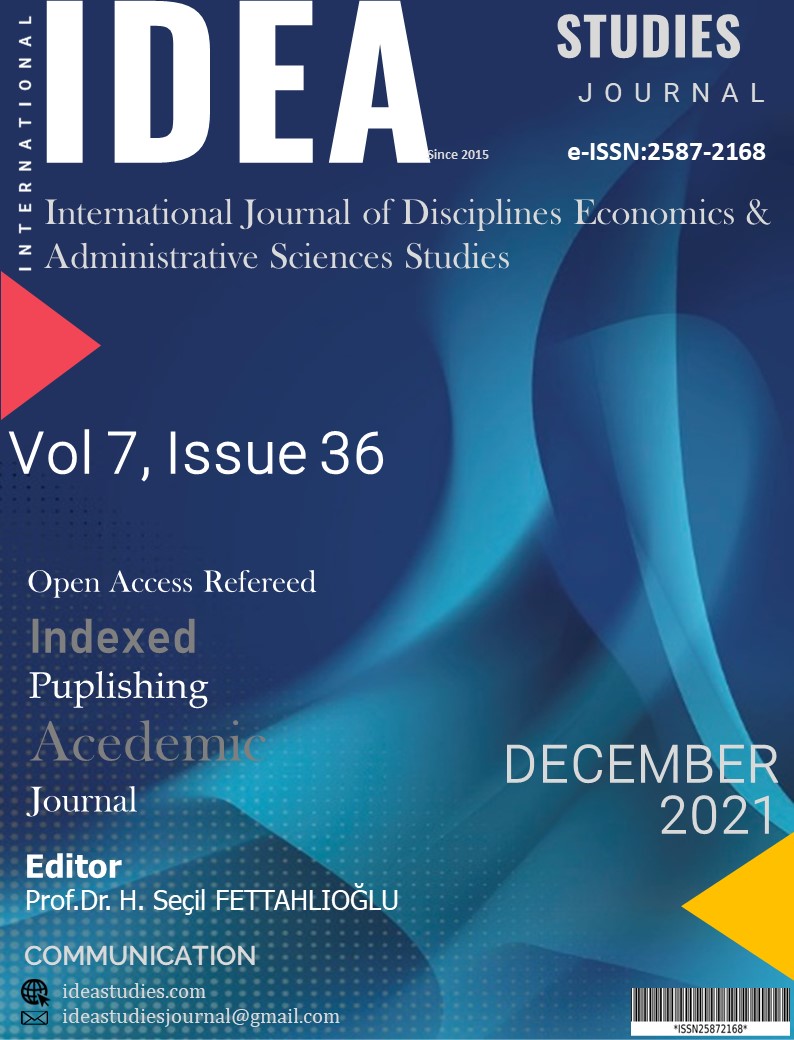Author :
Abstract
1910 tarihine kadar güvenilir, sağlam bir bütçenin olmadığı, siyasal güçlüklerin daha da zorlaştırarak harcamaların sağlıklı denetimini engellediği Osmanlı İmparatorluğu’nda gelişen ulusal hareketler devleti parçalanma tehdidine sokmuştur. Sonunda makinesiz, fabrikasız, demiryolları ağı yetersiz Osmanlı İmparatorluğu sağlam kazanç peşindeki sanayi ülkelerine, ellerindeki sermayelerini akıtabilecekleri yeni bir ülke olarak gözükmüştür. Öte yandan, Osmanlı yetkilileri, stratejik nedenlerle de olsa, ülkeye en azından modern donanım sağlama endişesi içindedirler. Burada da ödemeler dengesi de sürekli açık verirken sermaye gereksinimini daha da arttırmıştır. Kapitülasyonlarla birlikte, 1838 Ticaret Antlaşması’ndan beri Osmanlı hükümeti büyük güçlerin oybirliğiyle onayı olmadan, ne gümrük konusunda vergi sistemini değiştirebilecek ne de yeni vergiler koyabilecek durumdadır.
Keywords
Abstract
The national movements that developed in the Ottoman Empire, where there was no reliable, sound budget until 1910, and political difficulties made it even more difficult to prevent healthy control of expenditures, put the state in danger of disintegration. In the end, the Ottoman Empire, without machines, factories, and an inadequate network of railways, appeared as a new country where they could flow their capital to industrial countries in pursuit of solid profits. On the other hand, the Ottoman authorities were concerned about providing the country with at least modern equipment, albeit for strategic reasons. Here, too, the balance of payments has further increased the capital requirement while constantly running a deficit. Along with capitulations, since the 1838 Trade Treaty, the Ottoman government has not been able to change the tax system on customs or impose new taxes without the unanimous approval of the great powers.
Keywords
- Earle, E. M. (1972). Bağdat Demiryolu Savaşı, çev. Kasım Yargıcı, İstanbul: Milliyet Yayınları.
- Earle, E. M. (1972). Bağdat Demiryolu Savaşı, çev. Kasım Yargıcı, İstanbul: Milliyet Yayınları.
- Eldem,V, (1970). Osmanlı İmparatorluğu’nun İktisadi Şartları Hakkında Bir Tetkik, Ankara: Türkiye İş Bankası Yayınları.
- Kepenek, Y. ve Yentürk N. (2001). Türkiye Ekonomisi, Ankara: Remzi Kitabevi, 12.Bs. Kurmuş, O. (1972). Emperyalizmin Türkiye’ye Girişi, Ankara: Savaş Yayınları.
- Manisalı, E. (1975). Dışsal Ekonomiler ve İktisadi Gelişme, İstanbul: İstanbul Üniversitesi Yayını.
- Pamuk, Ş. (1985). 19. yy’da Osmanlı Dış Ticareti, Tanzimat’tan Cumhuriyet’e Türkiye Ansiklopedisi, İstanbul: İletişim Yayınları.
- Önsoy, R. (1988) Tanzimat Dönemi Osmanlı Sanayii ve Sanayileşme Politikası, Ankara: Türkiye İş Bankası Yayınları.
- Özyüksel, M. (1988). Osmanlı-Alman İlişkilerinin Gelişim Sürecinde Anadolu ve Bağdat Demiryolları, İstanbul: Arba Yayınları.
- Sükan, B. (2014). İmparatorluk’tan Cumhuriyet’e Türkiye’de Yabancı Sermaye Anlayışı, Ankara Üniversitesi Türk İnkılâp Tarihi Enstitüsü Atatürk Yolu Dergisi S. 54.
- Thobie, J. (1985). Osmanlı Devleti’nde Yabancı Sermaye, Tanzimat’tan Cumhuriyet’e Türkiye Ansiklopedisi, İstanbul: İletişim Yayınları.





